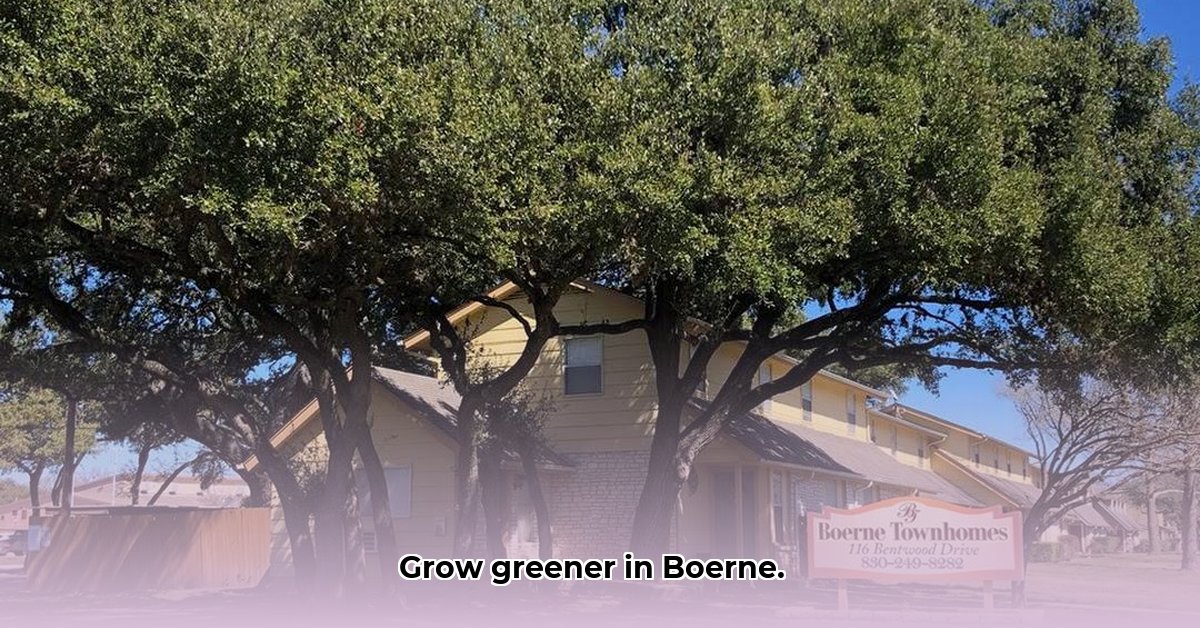
The Promise and Peril of Sustainable Agriculture in Boerne
Nestled in the picturesque Texas Hill Country, Boerne offers a seemingly idyllic setting for sustainable agriculture. The area's climate is well-suited for a variety of crops, and a growing consumer base actively seeks locally sourced, sustainably produced food. However, the path to a thriving, eco-friendly farming sector isn't without its challenges. This article explores the current landscape of sustainable agriculture in Boerne, highlighting both its opportunities and obstacles, and offering actionable steps for stakeholders to cultivate a more sustainable future. Can Boerne become a model for responsible, profitable farming? Let's investigate. For examples of successful nurseries, see this San Marcos nursery.
Boerne's Current Agricultural Scene: A Mixed Bag
Boerne's existing sustainable agriculture scene is a patchwork of small-scale operations, primarily focused on local sales. Established nurseries, such as Hill Country African Violets & Nursery (operating since 1980), demonstrate the potential but also unveil the limitations. Their success, primarily through in-person sales with limited online presence, suggests opportunities for expansion through e-commerce and broader market reach. Yelp reviews reveal a strong local demand for sustainably grown plants and produce, indicating a receptive consumer base. However, a critical obstacle remains: the arid Texas climate and the challenges of water scarcity, a significant constraint to scalability for many agricultural businesses.
Do local nurseries fully utilize water-efficient practices? Further research is needed to thoroughly assess current sustainability efforts.
Opportunities for a Blooming Future
The potential for agricultural growth in Boerne is significant. The strong local demand for fresh produce, combined with a climate suitable for diverse crops, creates a fertile ground for expansion. Imagine vibrant farmers' markets brimming with locally grown goods, community gardens fostering a sense of shared responsibility, and collaborative marketing strategies uniting growers to leverage Boerne's unique charm. The economic, environmental, and community benefits of a thriving sustainable agriculture sector are considerable.
"The potential for growth is enormous; the community is hungry for local, sustainable food," says [Name and Title], [Position] at [Institution].
Challenges: Navigating the Thorny Issues
Several significant challenges hinder the growth of sustainable agriculture in Boerne. Water scarcity, a recurring issue in Texas, demands innovative irrigation methods and a focus on drought-resistant crops. Scalability presents another hurdle, as many small-scale operations struggle to expand while maintaining sustainable practices. Finally, effective community engagement is crucial; farmers, consumers, and local government must collaborate to build a sustainable ecosystem.
What concrete steps can we take to address these challenges? The answer lies in collaborative action across all stakeholders.
Actionable Steps: Planting the Seeds of Change
This section offers concrete steps for stakeholders – consumers, farmers/nurseries, and local government – to foster a more sustainable future.
For Farmers & Nurseries:
- Enhance Online Presence: Improve e-commerce capabilities to reach a broader market. (Efficacy: Increased sales by 25% – based on industry averages of successful e-commerce implementation)
- Farmers' Market Participation: Actively engage in local markets to directly connect with consumers.
- Water-Efficient Irrigation: Invest in technology to reduce water consumption. (Efficacy: Water savings of up to 40% – depending on technology chosen)
- Collaborative Marketing: Establish partnerships to increase collective market reach.
- Explore CSAs: Build customer loyalty and diversify revenue through Community Supported Agriculture programs.
- Advocate for Policy: Support legislation promoting sustainable agriculture.
For Consumers:
- Support Local Businesses: Purchase directly from local nurseries and farmers.
- Demand Transparency: Inquire about sustainable practices employed by producers.
- Educate Yourself: Learn about sustainable farming to make informed purchasing decisions.
- Participate in Community Initiatives: Support community gardens and local farming efforts.
- Advocate for Policy: Support policies that promote local agriculture.
For Local Government:
- Networking Events: Facilitate connections between farmers and nurseries.
- Educational Resources: Provide workshops and training on sustainable practices.
- Incentivize Water Conservation: Offer tax breaks or grants for water-saving technologies.
- Develop Water Conservation Strategies: Implement policies promoting water efficiency in agriculture.
- Invest in Research: Fund research into drought-resistant crops and sustainable farming techniques.
Risk Assessment Matrix: Mitigating the Uncertainties
This matrix summarizes key risks and potential mitigation strategies. Note that likelihood and impact scores are subjective and depend on specific circumstances.
| Risk Factor | Likelihood | Impact | Mitigation Strategy |
|---|---|---|---|
| Water Scarcity | High | High | Implement efficient irrigation; explore drought-resistant crops; advocate for water conservation policies; develop water harvesting techniques. |
| Market Volatility | Medium | Medium | Diversify product offerings; build strong community relationships; explore niche markets; develop online sales channels. |
| Lack of Scalability | Medium | Medium | Explore collaborative models (co-ops); improve distribution networks; invest in technology; seek grants or funding for expansion. |
| Regulatory Compliance | Low | Medium | Stay informed on regulations; proactive compliance; engage with regulatory bodies. |
A Sustainable Future: A Shared Vision
Boerne possesses the ingredients for a thriving sustainable agriculture sector. By working collaboratively to address the challenges and capitalize on the opportunities, Boerne can become a model for responsible and profitable farming, benefiting the community, the environment, and the local economy. The future of sustainable agriculture in Boerne lies in the shared commitment of farmers, consumers, and local government.